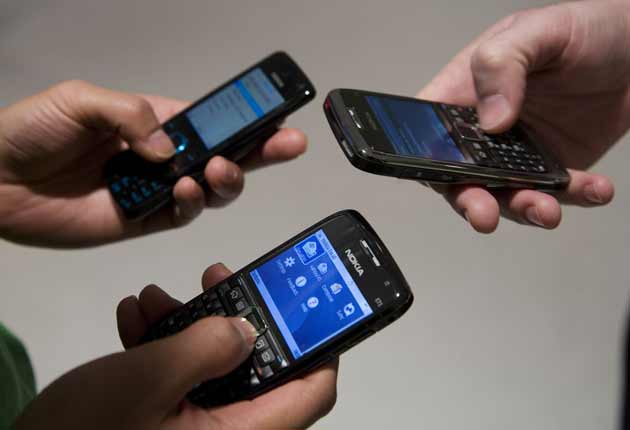Julian Knight: Use my mobile to swipe payment in shops? That's an idea with a very bad ring to it

Your support helps us to tell the story
From reproductive rights to climate change to Big Tech, The Independent is on the ground when the story is developing. Whether it's investigating the financials of Elon Musk's pro-Trump PAC or producing our latest documentary, 'The A Word', which shines a light on the American women fighting for reproductive rights, we know how important it is to parse out the facts from the messaging.
At such a critical moment in US history, we need reporters on the ground. Your donation allows us to keep sending journalists to speak to both sides of the story.
The Independent is trusted by Americans across the entire political spectrum. And unlike many other quality news outlets, we choose not to lock Americans out of our reporting and analysis with paywalls. We believe quality journalism should be available to everyone, paid for by those who can afford it.
Your support makes all the difference.Sad to say but crime is going to become more a part of our lives over the next year. Insurers are reporting sharp rises in burglary, car theft and fraudulent claims.
Likewise, employers say that thefts by staff have gone through the roof. Against this backdrop, Barclaycard and Orange are planning to introduce swipe-phone payment technology. Basically, you'll be able to swipe your phone and it will pay for goods. Your phone becomes your wallet and therefore an even bigger pull for muggers. On Friday, the Home Office announced grandly, and without an iota of foundation, that it was: "Taking the initiative in mobile phone crime." Ignoring the spin, this means that banks and mobile firms have said that once phone-swipe payment technology comes in, Pins would be needed for purchases over £10. But what about purchases under a tenner? Isn't it just going to make each of us even more of a target as we lug stealable wealth around with us in the form of phones and iPods? And what about young adults? They are just the type to adopt such a scheme early, and they are already the most likely mugging targets, with much of it going unreported. This is only going to make matters worse. Do we really need the supposed benefits of phone-swipe payment? Aren't there plenty of other ways for us to pay for our shopping?
An idea from another era
The more I see Child Trust Funds in action the less I think that it will actually reduce the gap between rich and poor. What's happening is that middle-class parents are adopting them enthusiastically, paying in plenty of cash and taking a keen interest in where the cash is invested to, they hope, maximise returns. Lower-income parents are not paying in as much and many are leaving it to the Government to choose a fund to invest their vouchers in. When today's seven year olds – who get a top up £250 from this week, see page 86 – turn 18, those from the middle classes will have a great big pot of cash and lower income kids a much smaller one; reinforcing, not reducing, inequality.
Labour's favourite think-tank, the Institute for Public Policy Research, wants the Government to match the CTF contributions of poor families. Sadly, it's an idea from another era, when the country had cash. We're now broke, and a spending round which will make the Thatcher government look like Santa Claus is on the way post-election. I doubt CTFs will survive this. Ultimately, the problem is that by concentrating too much on including everyone, the CTF will end up costing too much and failing in its goal of reducing inequality. It's a "third way" route to a fiscal and political dead end. Perhaps, if Gordon Brown had really wanted to make a difference, he should have means-tested access to CTFs as well as that hoary sacred cow, family allowance.
Join our commenting forum
Join thought-provoking conversations, follow other Independent readers and see their replies
Comments